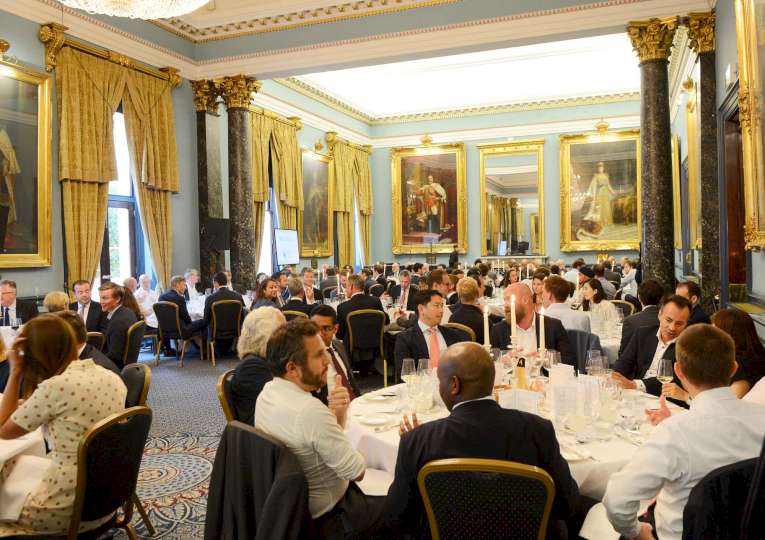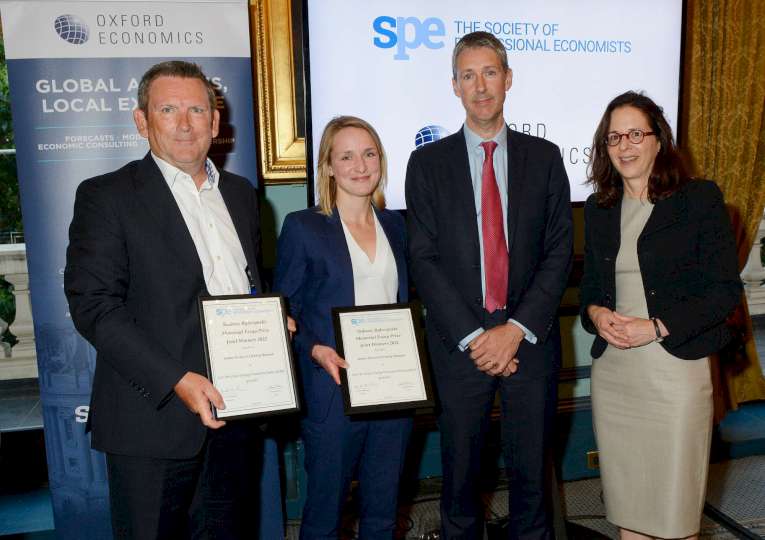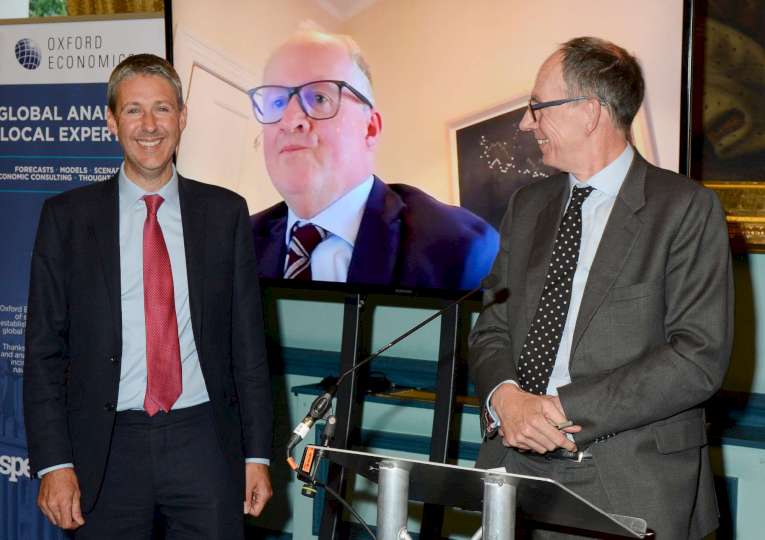
Over 210 members and guests gathered on Monday for the Society’s Annual Dinner in the Nash Room at the Institute of Directors. It was wonderful to see so many familiar and new faces. Our guest this year was Philip Lane, member of the executive board of the European Central Bank and the evening was presided over by Sir Dave Ramsden, President of the Society.
Unfortunately, Philip had come down with Covid and was unable to travel to the event, but by the powers of modern technology, we were able to run the event in the same way as it would have been had Mr Lane been there in person - delivering the speech to us and answering Q&A live from his home!
The SPE’s Chair, George Buckley, started the formal speeches by thanking Oxford Economics on behalf of the Society for generously sponsoring the dinner, and updated guests on the latest Society news and growth and thanked his fellow council members, and non-council members for the valuable support they offer. George also thanked KPMG for its kind sponsorship of the Rybczynski Prize, before handing over to Yael Selfin, Chief Economist at KPMG to announce the winner of the prize. The winning essay was Can the Clean Energy Transition Boost Global Growth? by James Nixon and Felicity Hannon from Oxford Economics. The winning essay can be found in the SPE online reading room.

During Philip’s highly anticipated speech, the ECB’s Chief Economist talked about the Bank’s upcoming expected policy rate increases and the need for the ECB to protect the transmission mechanism of monetary policy through the use of anti-fragmentation tools. He talked about the risk of high inflation becoming embedded (“inflation psychology”, in his own words) and how the central bank might respond to differing economic trajectories.

You can watch the speech and Q&A session below, and for a copy of the slides, please click here.
Sorry: IE8 cannot display our video content.

